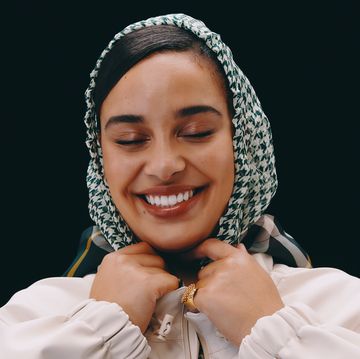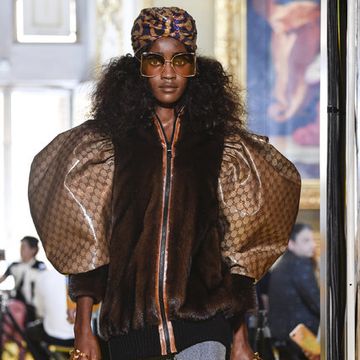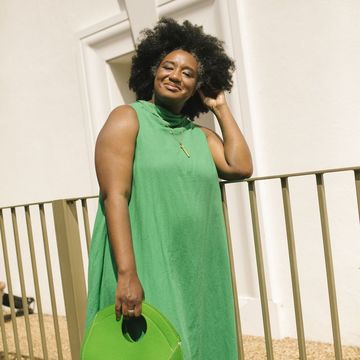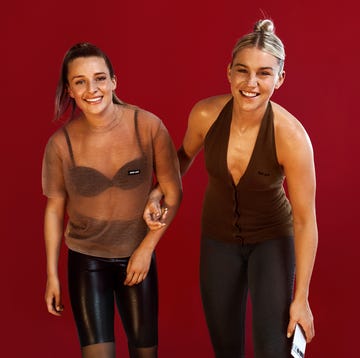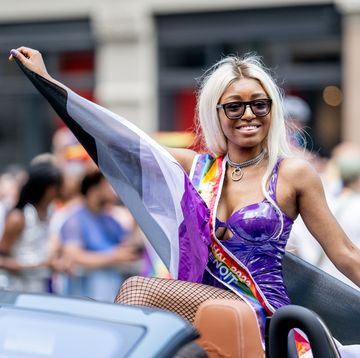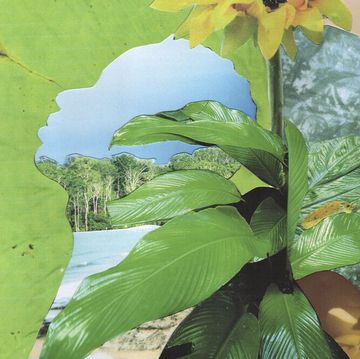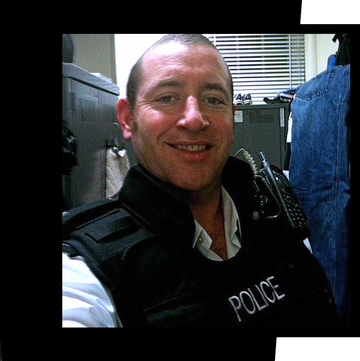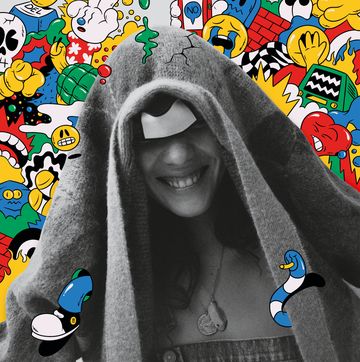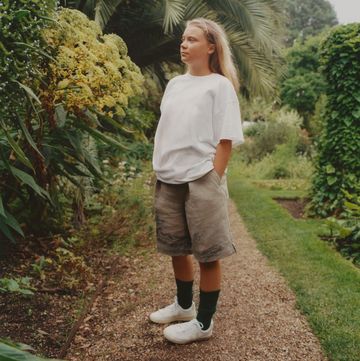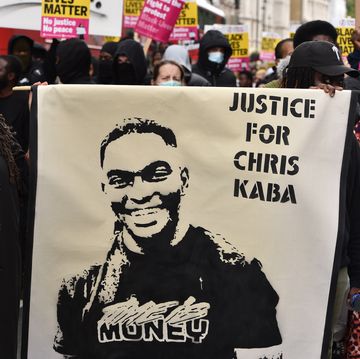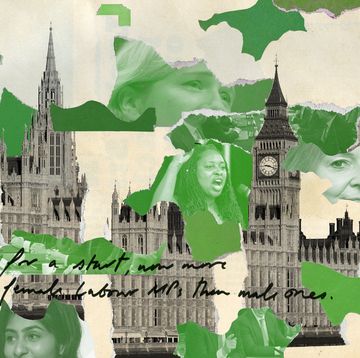Tinder has been around for about seven years now. I missed the initial scramble to join it. For most of my early 20s, I was in a long-term relationship and blissfully unaware of the catfishing, ghosting and bread-crumbing that my generation was slowly accepting as standard dating behaviour.
At age 28, three innocent years ago, I found myself single for the first time as a proper adult and picking flattering pictures of myself for a Tinder profile. Pictures that say 'I’m smart, and sexy, do interesting things and lead a fun life. Don’t you want to date me?'
Right away, I was struck by the sheer variety of people out there. Confined to our peer groups and professional networks, we tend to meet people who are socio-politically, economically and culturally similar to us. The apps broaden our horizons – where else would I meet an Australian theoretical physicist? Or a Swedish powerlifter? Or a Texan futsal coach? Or a Jamaican-Italian artist?
Yes, all these men exist.
Lucky for me, I don’t have a distinct type – maybe I gravitate towards a ginger beard, but it’s a mild preference. The thing is, you never know what you’re going to find attractive about someone; their infectious laugh, their book collection, their devotion to their nan or how competitive they get about board games. I wasn’t about to eliminate men based on trivial things like their facial hair, height, or race.
Like any brave love-seeking heart that dares enter the dating app world, after three years of it, mine now bears scars of some very unkind treatment. I had been warned by more seasoned app daters that you have to lose some, and be abused some, to win some.
But some of the abuses seem to have gone beyond the scope of your average spread of dating behaviour.
Where am I really from?
Using dating apps has made me confront my identity in ways I didn’t have to before. Take, for instance, the seemingly innocent conversation about where I am from.
'Where are you from?' is an easy, albeit boring way that many a conversation begins in a place like London; a majority of people have in fact come from somewhere else.
I find it hard to respond to the question. The answer isn’t as straightforward as you might think. I’m Indian. But perhaps it’s more accurate to say I am from Mumbai. But I’m not from Mumbai because my family is from Goa. I’m technically part Portuguese – how that happened is too long to get into, but involves colonialism – so am I from there too?
I’ve been in London for four years now, so maybe it’s time I start saying I’m from South East London?
But this is usually followed by the predictable question; 'But, where are you really from?' The colour of my skin makes it blatantly obvious that I’m not English English. I’ve come to hate being asked the question on dating apps because past experience has revealed some of the horrifying directions the conversation can go from there.
Yes, my lady parts are brown
For example, the answer 'I’m from India' was once followed by: 'I’ve never seen a brown pussy before.'
In a few words, the multi-layered cultural experience of being a South Asian person, was replaced by a vagina in a slightly different hue than he was used to.
Even just the words on a screen felt like a violation of my personal space and an uninvited proximity to my lady parts. He would never lay his eyes on mine!
*Unmatch*
Sometimes I answer with 'I’m part Indian, part Portuguese,' which more often than not plays into the recurrent theme of objectification of mixed race people.
Just to elaborate for a second - for centuries, romantic relationships between people of different races were legally and social unacceptable – like me, a product of colonialism. Being mixed race was rare, taboo, mysterious and by extension considered sexually alluring by some. This was a very long time ago and being mixed race is no longer that rare. It’s time we get over it.
A typical response to 'I’m part Indian, part Portuguese,' is being told I am exotic; 'Ooh that explains why you’re so sexy' or 'That’s hot *heart eyes emoji*.' The 'that' being referred to is my perceived race, not me. In a single syllable the 'that' turned me from person to object. I would rather date a man who has a heart eyes emoji for me, not the colour of my skin.
*Unmatch*
This experience of feeling objectified isn’t mine alone.
I spoke to fashion and beauty blogger Jess Debrah after I came across a tweet by her calling men out on their fetishisation of black women. 'Off the bat when I say “Hey, how are you?”, I’ll get a response like “Hey sexy, loving the curves on you” or “I’m loving your big bum”. But I am sitting down or standing up in all my pictures, I don’t have any bum pics in my profile!,' she told me. With her bum hidden from view, the comments clearly have less to do with her, and more to do with a fantasy about black women.
Again, a little background: generations after Sarah Baartman – an African slave woman who was exhibited in early nineteenth century freak shows across Europe for white men to look at – the black woman’s bum still remains an object of perverse fascination; consumed by the male gaze, without her consent. However playfully said and even without malicious intent, 'Hey hot chocolate!' is a universally unacceptable way to open a conversation.
*Unmatch*
Fetishisation is problematic, preference is not
Let me be clear, I think there is nothing wrong with having a physical preference when it comes to finding a sexual partner and this may mean you gravitate towards people of a certain race.
But, fetishisation – defined by the Oxford dictionary as the ‘excessive or irrational devotion to an object or thing’ – of race isn’t just about having a preference, it’s about getting caught up in race instead of seeing the person as a multi-faceted individual. It’s about making them feel like the most important thing about them is the colour of their skin, not what’s on the inside.
A buffet of colourful choices
Having grown up in Mumbai, which isn’t racially diverse, I didn’t encounter people of different races in the dating context until I was much older and living in the UK.
It didn’t occur to me that I may be sexually interesting to someone because of the colour of my skin.
But having grown up in London, Jess’s experience is different.
From the catcalls about her 'beautiful big black bum' to the guy who grabbed her in a club to whisper 'I’ve always wanted a chocolate girlfriend,' girls like Jess grow up in a world where the objectification of their race and body is a mundane experience.
'I don't even feel that shocked or disgusted,' Jess says, 'It feels like that it goes with the territory of being a black woman or woman of colour on dating apps. We will most likely be disrespected by some men who want to make us their fantasy. It has to stop, it isn't right.'
Jess fairly points out it isn’t all men and clearly apps do not create the problem. They do, however, provide the playground where perversions run free. The picture-first interface lays before the swiper a colourful buffet of choices, leading many people to be overwhelmingly fixated on what they can immediately see.
And the initial casual DM culture only serves to exacerbate this, with not many users exercising the tact and etiquette that it takes to approach race.
How can we bring about change?
Well, I don’t quite have the answer to that. But discussing the subject whenever possible, making friends with people outside of your own race and raising your voice if you’ve felt objectified will all go a long way, I hope.
In my experience, at least in the context of dating apps, those prone to fetishising race are easy to spot and make themselves known early on in a conversation.
As a rule of thumb, if you are ever made to feel like your body is more important than your soul, *unmatch* them, but before you do, give them a piece of your mind.





